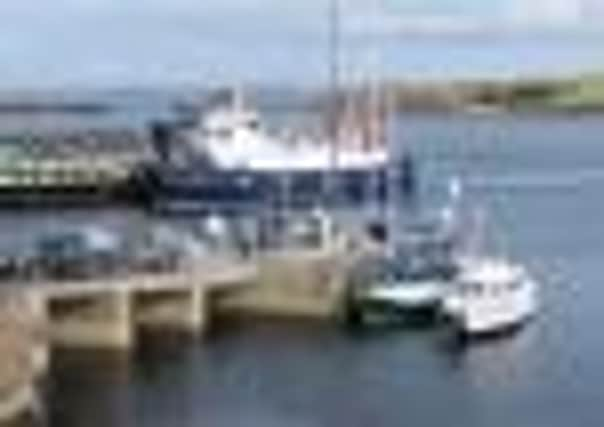Island life under threat as Shetland ferries face axe to save cash


Shetland Islands Council (SIC), which is currently spending about £100,000 a day more than it can afford, has unveiled a series of radical proposals for ferry service cuts, reductions in street lighting and savings on its winter roads budget in a bid to balance the books.
The plans, going out to public consultation, include reducing ferry timetables, cutting the numbers of ferry crews and axing one of the two ferries on the Yell Sound route, which currently costs the islands council £3.7 million a year.
Advertisement
Hide AdAdvertisement
Hide AdThe council has also unveiled proposals to end the free ferry service on the Bluemull Sound run which links Unst and Fetlar with Yell.
The charges for the inter- island ferry service to Britain’s most northerly inhabited island were scrapped in 2005 following the closure of the base at RAF Saxa Vord, which had been the main employer on Unst for almost 60 years. The service costs the council £2.4m a year.
Also under threat are one sailing a week to Papa Stour and summer sailings between Foula and Scalloway.
Councillor Robert Henderson, who lives on Yell, warned that people living in some of the islands’ most fragile communities could move to the mainland if the proposed cuts go ahead.
He said: “People are obviously concerned about what is going to happen. Any reduction in ferry services is detrimental to any isle.
“If the services decrease or the fares increase, I don’t think there is any doubt that folk will leave some of the islands. The young folk especially, if they cannot move around as they would like to do, will go to the mainland and stay there.”
Mr Henderson added: “The biggest worry is a reduction in services to the outer isles or a severe hike in ferry fares. Some folk are already paying £10 a day to get their car on the ferry to get to access their employment on the mainland – that’s £50 a week out of your wage. And if there is a hike in the fares it will make life all the more difficult in outlying areas. It’s a tax on island life.”
A council spokeswoman said: “With diminishing reserves, increased costs, and poorer returns on investments, the council’s spending still far outstrips its available resources. Last year, the SIC saved £11.5m – £2.1m more than its target – largely as a result of work done by staff on identifying internal efficiencies. Despite that, the council still operated at a loss of around £100,000 a day.”
Advertisement
Hide AdAdvertisement
Hide AdCouncillors decided in February to review over 50 of its services, to try to identify potential savings.
Councillor Allan Wishart, chairman of the environment and transport committee, said: “I know the whole concept of ‘consultation’ might have a bad reputation for some people – but I can’t emphasise enough the seriousness of the financial situation facing the council, and the need for the public to get involved in this process. It’s no longer a case of whether or not we make cuts – but where those cuts can be made with the least impact.”